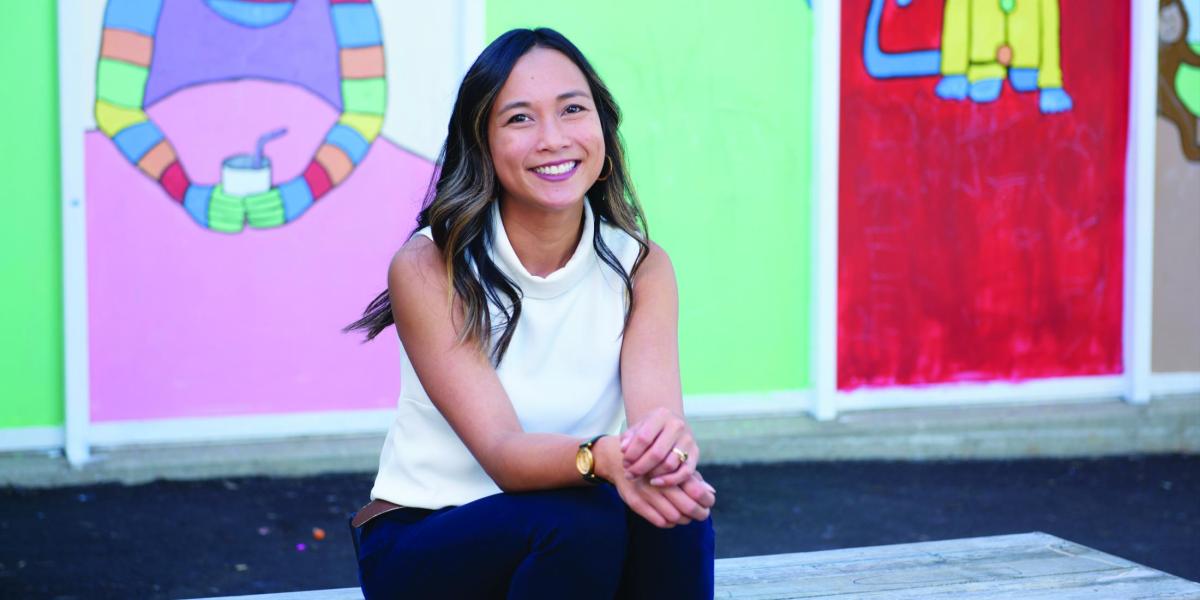Sponsored Content
The current national and local dialogue surrounding education is a dire one, a story of teacher shortages, underperforming students, and children who are disproportionately being left behind along lines of race and class, particularly by the widening digital divide. While the headwinds we are facing as a city and country are strong, Teach For America (TFA) Baltimore maintains a vision of critical hope. We understand the complex, structural challenges facing Baltimore City Schools and the broader educational ecosystem, and meet those challenges head-on with innovative solutions designed to make a positive impact in the classroom and beyond.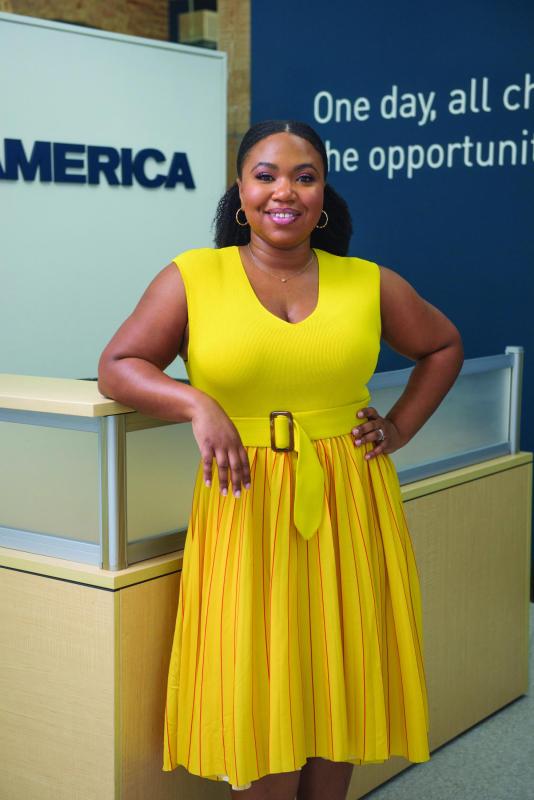
“As a former City Schools teacher, the success and wellbeing of our young people and educators is paramount. I fully acknowledge that we are at an inflection point in education,” says NORMANDI AMPREY (BALTIMORE ’09), TFA Baltimore’s executive director and a TFA alumna.
“This work is challenging, but it is urgent and necessary to provide young people the opportunities they deserve. We must first believe it is achievable, and it is if we all rally together behind it.” —Normandi Amprey
“Our corps members and alumni, like so many educators in this moment, are hand-raisers. They are uncompromised in their belief that educational equity matters, so they are stepping up to support young people, not backing away or stepping down. They love children, maintain rigorous academic expectations, and innovate to find solutions during this difficult time,” she continues.
With more than 1,300 participants in the Baltimore region, the TFA network is ubiquitous throughout the education and civic landscape in the city and the state. Given their breadth and scope, TFA is well-positioned to work with key partners to address several of the issues affecting Baltimore’s schools and the surrounding systems. Today, there are over 500 program alumni working in schools and they reach approximately 30,000 Baltimore City students annually. Nearly 10 percent of Baltimore City Schools principals are program alumni, and many others are working through education nonprofits, in the growing EdTech space, and in public policy to bring innovative solutions to the most pressing education problems.
Specifically, TFA is focusing its efforts on critical need areas: teacher recruitment and retention, early childhood education, and college and career readiness. As the city’s most diverse source of new teachers, TFA strives to bring well-prepared, anti-racist, equity-driven teachers to the classroom. By giving those teachers the supports they need, 40 percent of TFA teachers continue to teach for five or more years.
Within this section, TFA highlights the hope and promise offered by its educators as well as the power of their classroom commitment to bring about systemic change.
“TFA nationally has put a stake in the ground behind a 10-year goal focused on increasing student outcomes in every community where we work. In Baltimore, we are working with partners to double the number of students who are hitting key metrics that predict economic mobility by 2030,” says Amprey. “This work is challenging, but it is urgent and necessary to provide young people the opportunities they deserve. We must first believe it is achievable, and it is if we all rally together behind it.”
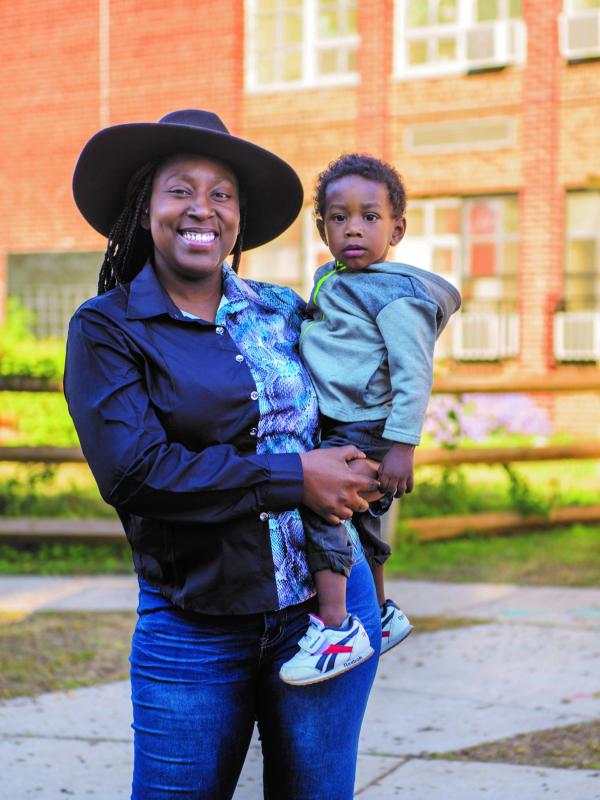 ⊳ GERI McCARTER (BALTIMORE ‘18) was working at a Nordstrom when she happened to wait on a TFA corps member. She’d always been interested in teaching and realized the TFA model would allow her a pathway to classroom teaching even though her background was not in education. Nor was she a fresh-faced recent college graduate, like most of the TFA recruits. McCarter was 30 years old, married, and pregnant when she entered the corps.
⊳ GERI McCARTER (BALTIMORE ‘18) was working at a Nordstrom when she happened to wait on a TFA corps member. She’d always been interested in teaching and realized the TFA model would allow her a pathway to classroom teaching even though her background was not in education. Nor was she a fresh-faced recent college graduate, like most of the TFA recruits. McCarter was 30 years old, married, and pregnant when she entered the corps.
“Some of what TFA is doing to recruit and retain teachers is offering rigorous professional development, keeping teachers engaged, partnering them with mentors, putting them in schools where others who have gone through TFA are still there, and making sure that teachers have the supports they need,” she says.
New teachers nationally are a precious resource, so TFA works hard to ensure its corps members are given the best training possible. “We had long days of training,” says McCarter, who is a middle school social studies teacher at Baltimore Montessori Public Charter School, whose executive director is also a TFA alumna, Meghan Rennard (Baltimore ’05). Outside school, McCarter runs the nonprofit Coach G. Academy, Inc., which uses step dance to teach life skills. Her work with youth and dance earned her a prominent role in the documentary Step.
“Being from Baltimore, [teaching is] very personal. I feel that I’m contributing something positive. I feel like it’s my rent to the city, my way to make measurable change I can see.” —Geri McCarter
TFA’s commitment to diversity, equity, and inclusion (DEI) was very important to McCarter. “We learned to understand the true meaning of equity and how to be truly equitable in the classroom.”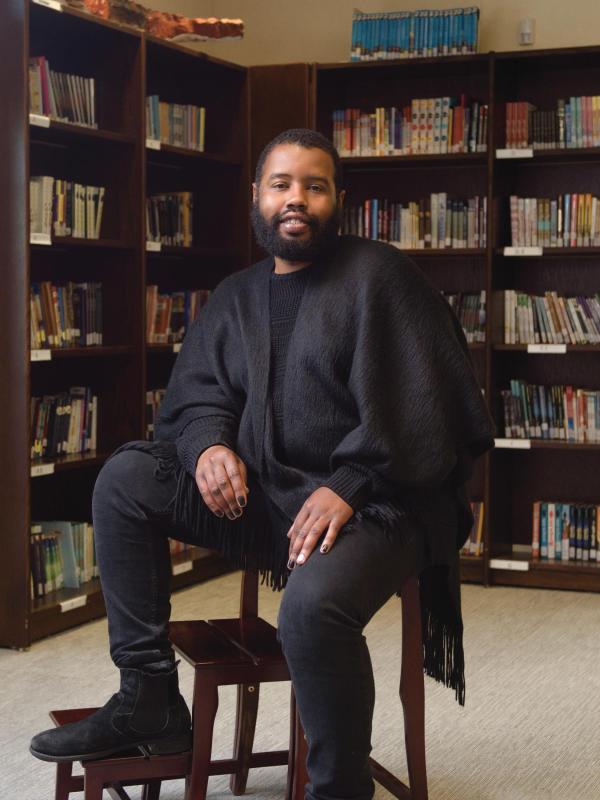
TFA’s DEI commitment was important to ELIJAH MUHAMMAD (BALTIMORE ‘17), too. He came to TFA with a collegiate background in sociology and African American studies, which informed his understanding of structural inequities. A Baltimore native, TFA allowed him to stay in his hometown and pursue teaching in special education, where he saw students—especially students of color—were often marginalized. His first placement was as a special education middle school teacher at Holabird 229.
“They’re more focused on recruiting people from the city and local colleges, people who already care about Baltimore because they live here…they’re really thinking through ‘how are we in Baltimore and of Baltimore.” —Elijah Muhammad
“My principal at Holabird recognized that DEI was my interest and she afforded me the opportunity to push those tough conversations amongst the staff,” he recalls. Today, Muhammad has brought together all his passions as the DEI coordinator at The Odyssey School, which supports students with dyslexia and language learning differences. In his current position, he’s worked with TFA to sponsor TFA teacher trainings in Phono-Graphix, a methodology for addressing reading challenges.
As part of its ten-year pledge to double the number of students who are hitting key metrics that predict economic mobility by 2030, TFA is expanding its local recruitment efforts. “TFA Baltimore’s process is more nuanced and aligns people with where they want to be,” says Muhammad. “They’re more focused on recruiting people from the city and local colleges, people who already care about Baltimore because they live here…they’re really thinking through ‘how are we in Baltimore and of Baltimore.’”
The local connection is important to McCarter, too, who attended Baltimore City Schools and graduated from Coppin State University. “Being from Baltimore, [teaching is] very personal,” says McCarter. “I feel that I’m contributing something positive. I feel like it’s my rent to the city, my way to make measurable change I can see.”
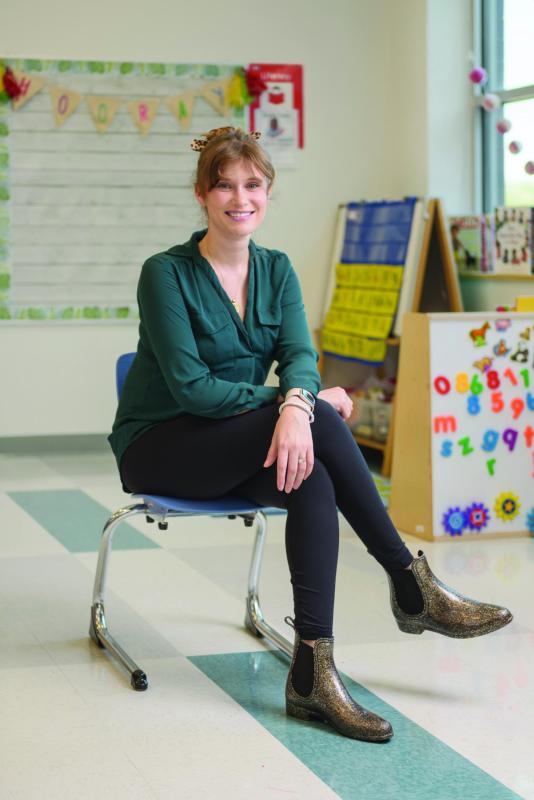
⊳ When ASHLEY PATRICK (BALTIMORE ‘13) initially joined TFA Baltimore, she had plans for a future career in public policy. But once she entered the classroom, she never looked back. She began her two-year stint as a corps member at John Ruhrah Elementary/Middle School, teaching pre-kindergarten. Now, ten years later, she’s still in the same school and subject area.
“I think there are folks like me who join TFA thinking they’ll get their feet wet in the classroom and then go do something else,” says Patrick, “but your reach is so much stronger in the classroom than it is going off to law school or pursuing public policy.”
“If you are someone who looks at inequity in the education system and that bothers you, teaching is the most impactful way to close those gaps,” she continues.
Part of what has kept Patrick engaged at school is its unique demographics; John Ruhrah has the largest concentration of English language learners in the city. Many of Patrick’s students are “newcomers,” meaning the English they hear in her classroom may be the first English they’ve heard in their lives. Rather than be intimidated by that prospect, it’s enabled Patrick to double-down on playbased, intentional learning.
“If you are someone who looks at inequity in the education system and that bothers you, teaching is the most impactful way to close those gaps.”
—Ashley Patrick
“Good early childhood teaching is good English to Speakers of Other Languages (ESOL) teaching,” she explains. While not an ESOL teacher, Patrick works closely with the ESOL teacher at her school who is also a TFA alumna. And she’s shared her experience working with English language learners as a corps member advisor at the TFA Summer Institute.
Teaching is one of the most challenging jobs there is in the modern world. It is physically, mentally, and emotionally demanding, and every year, with varying external contexts, each group of students is different with a unique set of needs. And yet, the TFA community of 500-plus alumni is an important part of why its teachers exceed the district retention average, with 40 percent of TFA teachers staying in the classroom for more than five years.
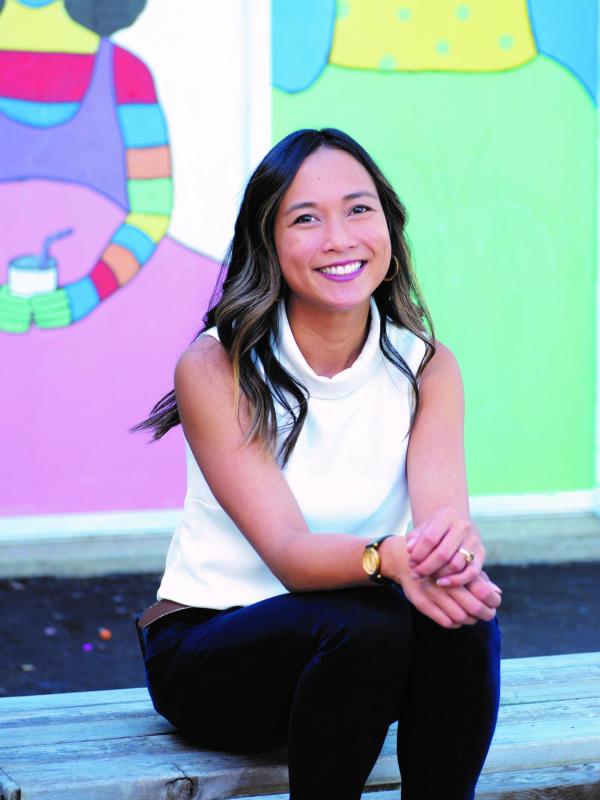 “When I think about who is still here teaching, it very much has to do with feeling connected and having a community,” says ALYSSA DISPOTO-GUMABON (BALTIMORE ’13), an early childhood education and ESOL teacher at Lakeland Elementary/Middle School who has entered her tenth year of teaching. Having a powerful network like TFA doesn’t just help the corps member, it multiplies the benefits to others. This is evidenced by Dispoto-Gumabon’s own experience. When some teachers voiced a desire for improved and ongoing ESOL education, Dispoto-Gumabon reached out to a TFA corps member and principal in Boston who was doing innovative work in that area.
“When I think about who is still here teaching, it very much has to do with feeling connected and having a community,” says ALYSSA DISPOTO-GUMABON (BALTIMORE ’13), an early childhood education and ESOL teacher at Lakeland Elementary/Middle School who has entered her tenth year of teaching. Having a powerful network like TFA doesn’t just help the corps member, it multiplies the benefits to others. This is evidenced by Dispoto-Gumabon’s own experience. When some teachers voiced a desire for improved and ongoing ESOL education, Dispoto-Gumabon reached out to a TFA corps member and principal in Boston who was doing innovative work in that area.
“When I think about who is still here teaching, it very much has to do with feeling connected and having a community.”
—Alyssa Dispoto-Gumabon
“Teach For America helped with the funding and coordination to make a site visit happen,” she says. “We took Teach For America teachers from several schools to Boston where we created connections and were able to bring new strategies back to Baltimore with us.”
A TFA early childhood book club inspired Alyssa to raise funds for an age-appropriate playground. The grants came from Under Armour and South Baltimore Gateway Partnership. Both Dispoto-Gumabon and Patrick have been able to mentor new teachers and see their experience expand beyond their own classroom. But nothing is more rewarding than watching their students flourish.
“People think we’re just teaching kids to read,” says Patrick, “but you are also serving as an important adult in your students’ lives. And if you stick around you get to watch them grow and you can continue supporting your students.”
Prior to the covid-19 pandemic, education for the U.S.’s littlest learners was trending up. According to the U.S. Census Bureau, the years 2005 to 2019 showed an overall net gain in the percentage of children ages 3 and 4 enrolled in preschool. It’s no wonder why: children in early education programs are proven to be better prepared for school and the workforce.
Despite a pandemic downturn in enrollment and the impact of teacher shortages, TFA corps members and graduates continue to push for improved curriculum and access to early education. No one is more outspoken on this topic than 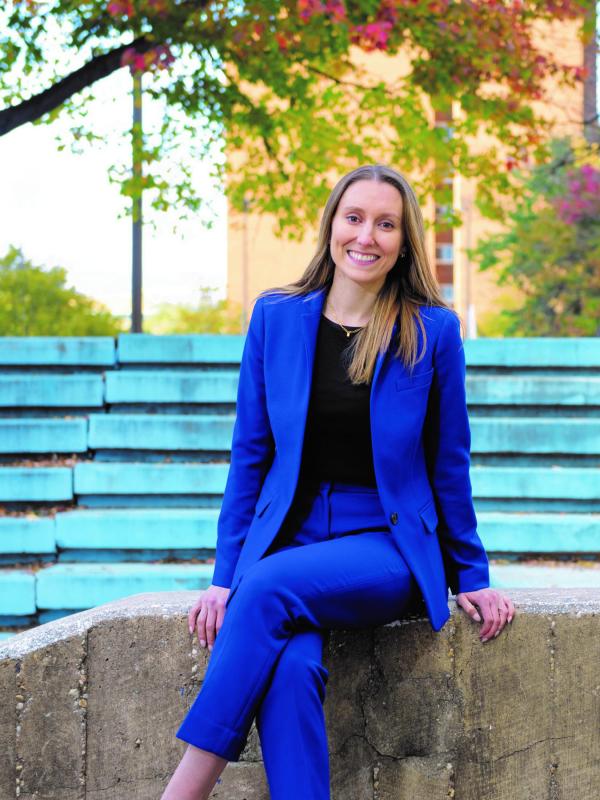 ⊳ BEROL DEWDNEY (BALTIMORE ’13), a pre-kindergarten teacher at Commodore John Rodgers, and the 2022 teacher of the year in both Baltimore City and the State of Maryland.
⊳ BEROL DEWDNEY (BALTIMORE ’13), a pre-kindergarten teacher at Commodore John Rodgers, and the 2022 teacher of the year in both Baltimore City and the State of Maryland.
“I believe that in order to effectively grow brains we have to understand how they work; we must focus not just on what kids learn, but how they learn,” says Dewdney, who advocates for play-based and healing-centered early childhood education grounded in the neuroscience of brain development.
“Executive functions are the most powerful prosocial indicator of life outcomes and are best developed in the early childhood years when the brain is most neuroplastic,” she continues. “As fighters for educational equity and justice, if we know the highest point of impact is priming brains for learning by developing executive function, and that we can most effectively build it in early childhood, then we have no choice but to double down.”
MARYLAND TEACHER OF THE YEAR WINNERS
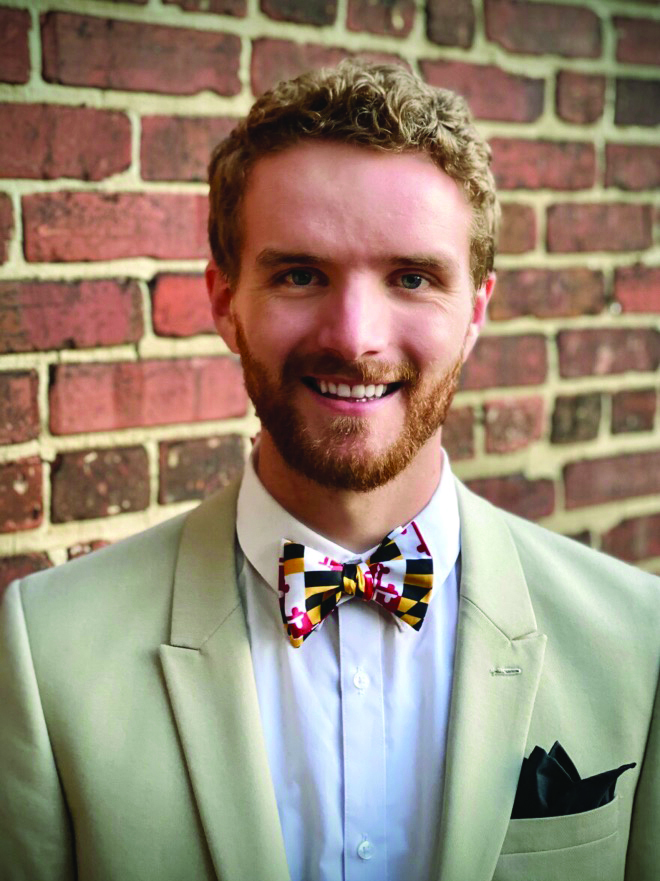
WYATT OROKE (BALTIMORE ‘13)
named Maryland Teacher of the Year in 2020
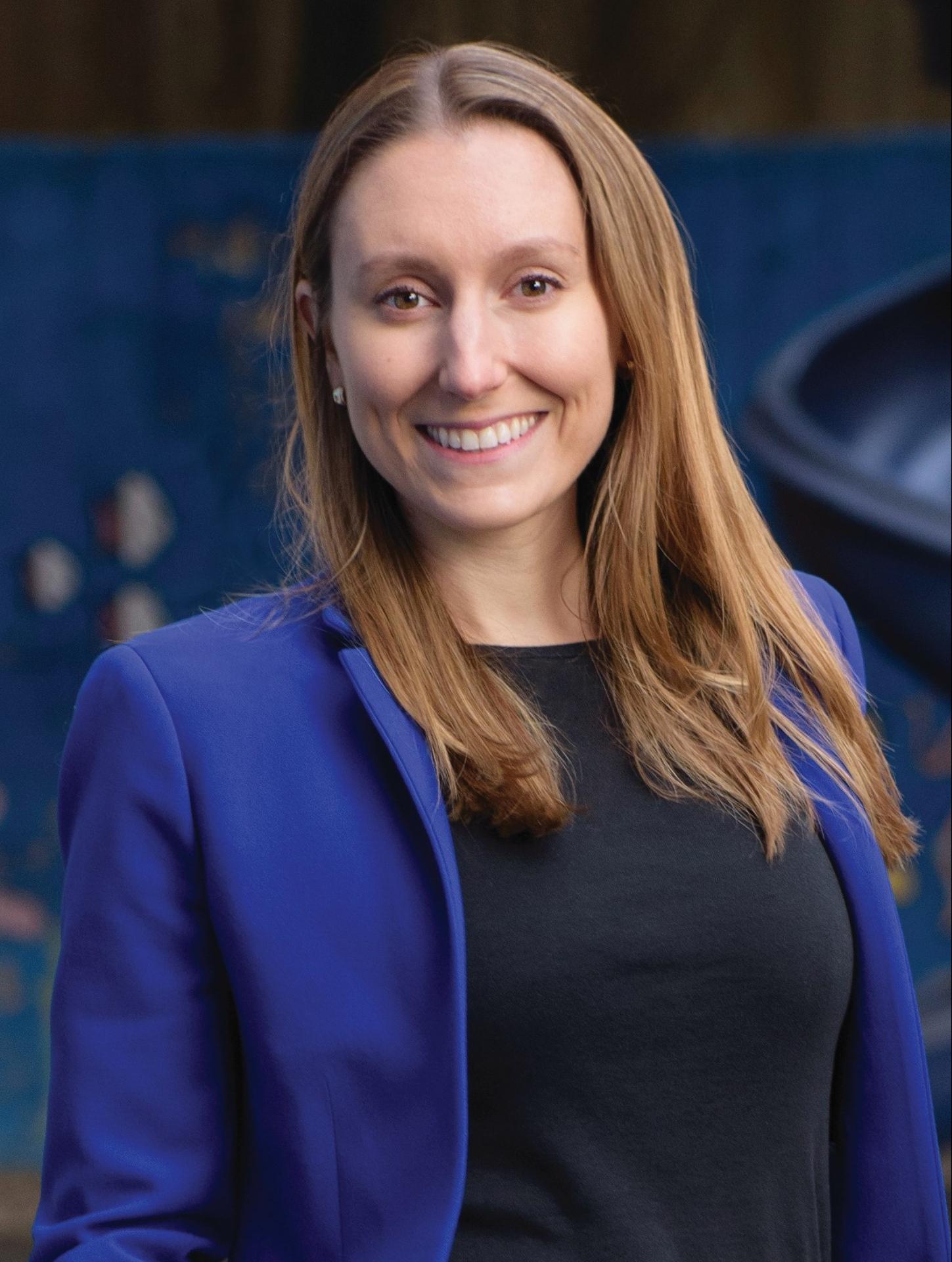
BEROL DEWDNEY (BALTIMORE ‘13)
named Maryland Teacher of the Year in 2022
“As fighters for educational equity and justice, if we know the highest point of impact is priming brains for learning by developing executive function, and that we can most effectively build it in early childhood, then we have no choice but to double down.”
—Berol Dewdney
As an intern in Washington, D.C., between her first and second corps years, Dewdney was introduced to Tools of the Mind, a pedagogy anchored in the research of psychologist Lev Vygotsky that says children must learn more than just facts, they must master mental tools. It is a means to use intentional, play-based learning to develop executive functioning. Dewdney was so impressed by the curriculum her only question was, ‘Why isn’t this in Baltimore at this scale?’
Dewdney credits her TFA network, particularly her current principal, Marc Martin (Baltimore ‘98), with helping her to initiate Tools of the Mind at her school and expand it elsewhere. Martin, also a TFA alumnus, is founder and director of The 100% Project, a small network of City Schools committed to improvement. “TFA Baltimore is very rooted in relationships,” she explains. “I can’t imagine doing this work without TFA Baltimore.”
With the national dialogue—and funding—focused on the importance of early education, Dewdney says we’re at a critical juncture when we need to implement curriculum effectively. Through the 100% Network, Dewdney now has a cohort of 25 classrooms she serves that reaches about 500 students annually. Through those classrooms, she’s building a body of research to not only support the need to develop executive functioning skills in early education, but also the importance of implementing it at a district level.
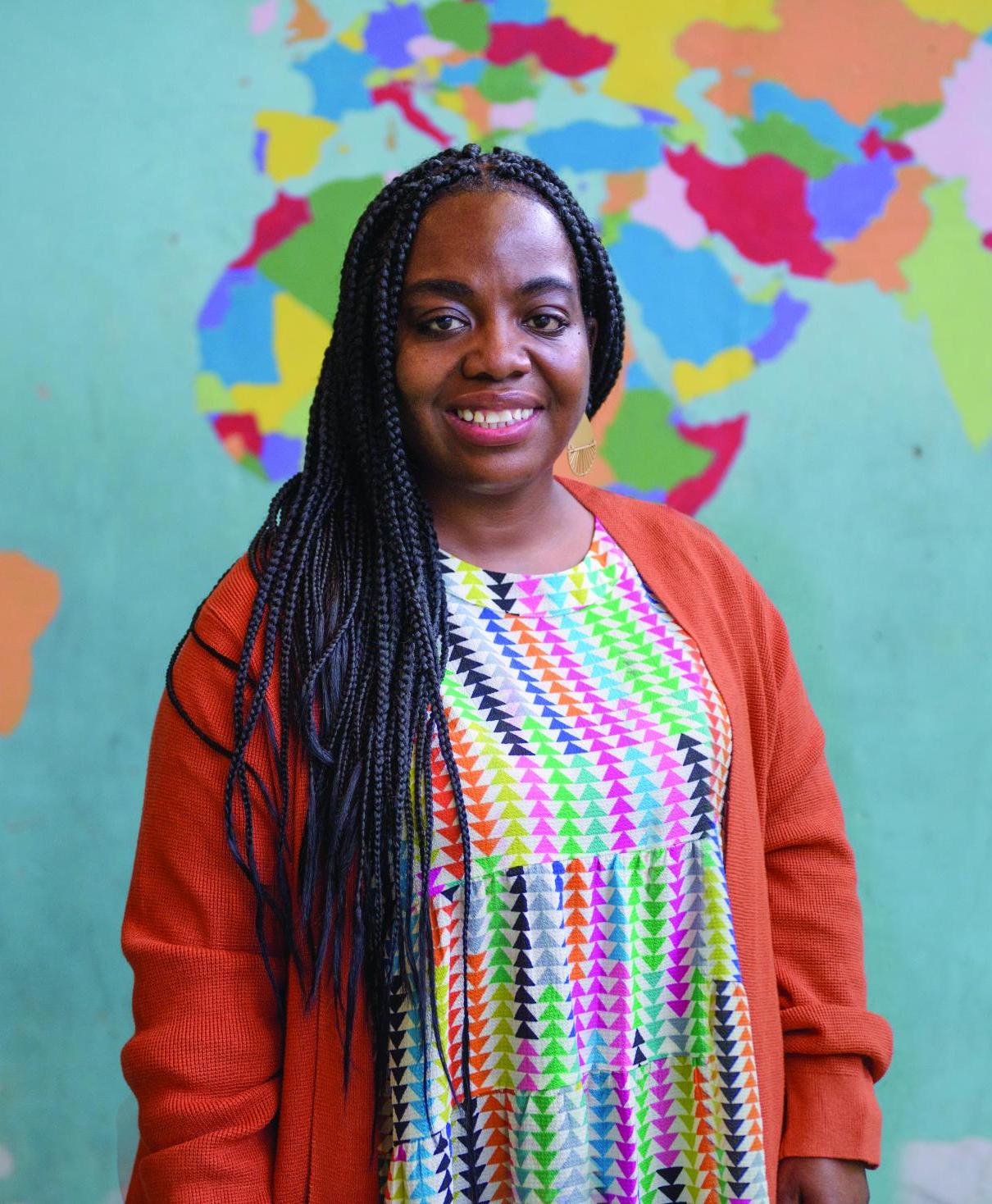
NATASHA PERRY (BALTIMORE ‘19)
Patterson Park Public Charter School
Many people only understand teaching based on social media videos; however, there is so much more to understand. TFA is combating these challenges by streamlining the process to become a teacher. They offer classes to obtain your teacher certification, they provide an opportunity to obtain your master’s degree within two years, provide coaches to support you, provide information and opportunities to advance your career that leads to additional pay, and a network of alumni who are willing to support you.
MEET THE INAUGURAL WINNERS OF COURTNEY CASS CATALYST FUND GRANTS
This spring, Teach For America (TFA) Baltimore launched the Courtney Cass Catalyst Fund (CCCF) with a simple goal: Catalyze TFA alumni to further their impact for students and communities in Baltimore. The fund is named in honor of Courtney Cass, former executive director of TFA Baltimore for more than a decade. Courtney worked tirelessly to grow TFA’s impact on Baltimore, inspiring new teachers and TFA alumni alike to reach higher. Winners receive a grant up to $10,000 to help put their ideas in motion. A committee of teachers, students, TFA Baltimore staff, and community members selected six award winners from 18 impressive submissions. Here are their stories:
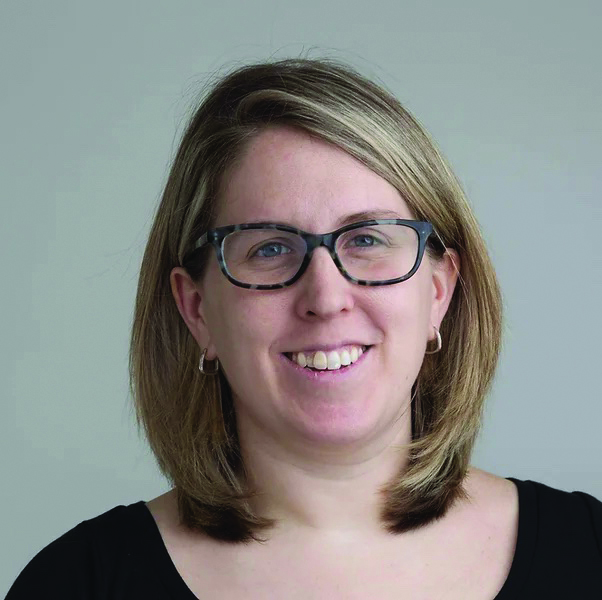
JAMIE NEIL (BALTIMORE ‘09)
Assistant Principal
Academy for College and Career Exploration (ACCE)
Dual Enrollment Revisited: Creating living wage career pathways
Students want and deserve an opportunity to work towards skilled careers prior to graduation, and Jamie Neil saw a gap in opportunities to explore trades. The CCCF award will afford students the opportunity to begin a trade pathway for free. ACCE is creating career pathways and investing in young people’s futures by paying tuition and books for students starting trade programs through dual enrollment with CCBC.
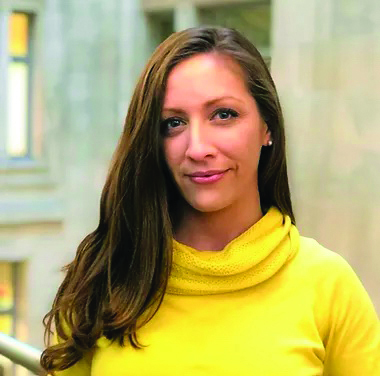
KIM COLEMAN (BALTIMORE ’05)
President
Bmore Global: Growing Global Citizens
Providing opportunities for Baltimore City youth to see the world
Bmore Global is transforming lives and growing global citizens. Bmore Global provides Baltimore’s students access to a culturally rich program culminating in a fully-subsidized study abroad experience to spark a lifetime of interest in cultures and a commitment to become agents of change in this world. With the CCCF award, Bmore Global is providing scholarships for students, subsidizing student travel, and measuring the program’s effectiveness to ensure long-term sustainability.
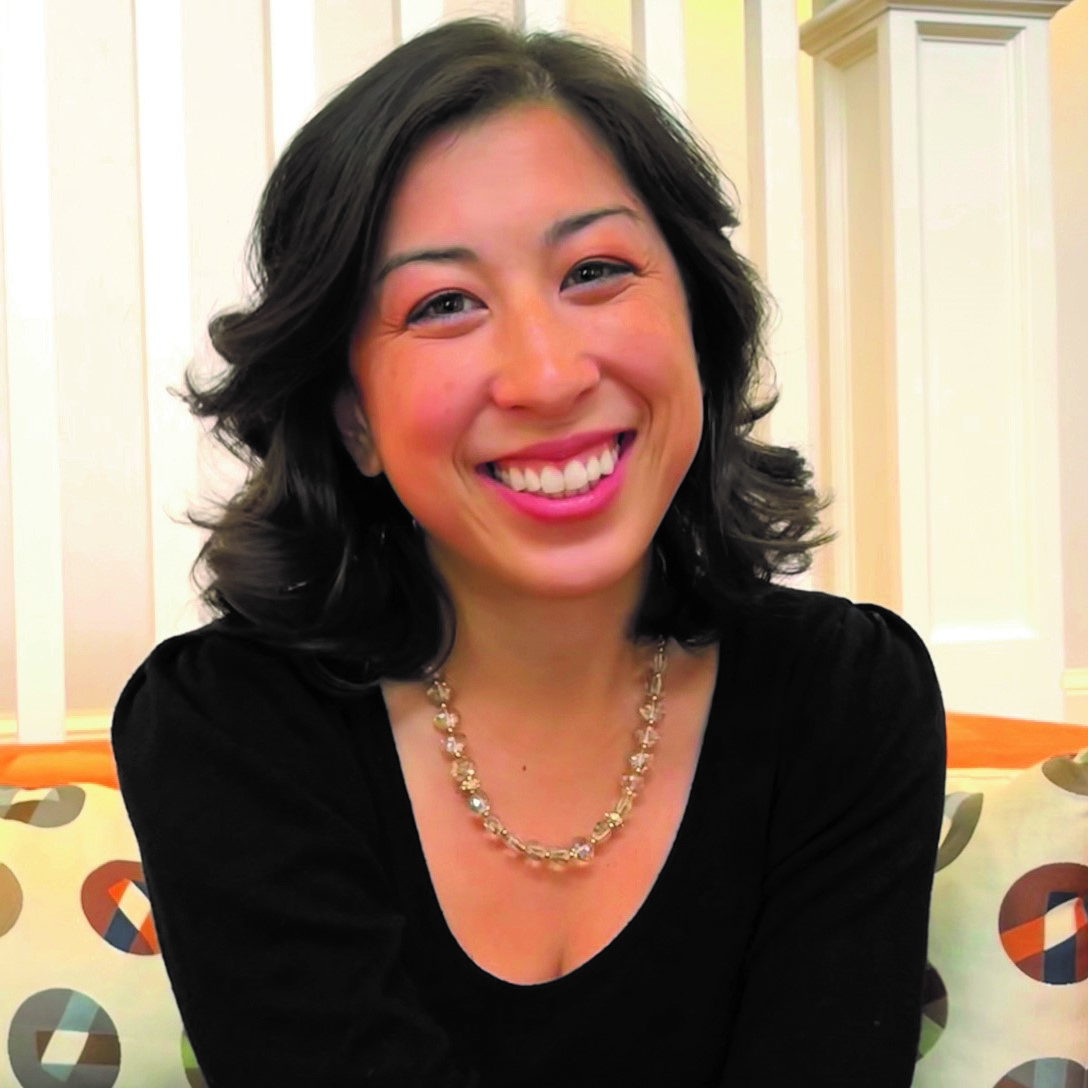
KATHRYN BREISCH (BALTIMORE ‘12)
Founder & CEO
GoPursue Career Awareness & Networking
Empowering students to choose and pursue their ideal careers through mentoring
Kathryn Breisch and her team at GoPursue are bridging the gap between high school students and the workforce by granting students career mentors in any industry. Baltimore City is full of amazing talent and GoPursue is helping students figure out the careers they want to pursue and connecting them with professionals in the industry to ask questions, get advice, and find lifelong mentors. The CCCF award will allow GoPursue to grow their training program and expand background checks to ensure the highest safety protocols for young people in Baltimore.
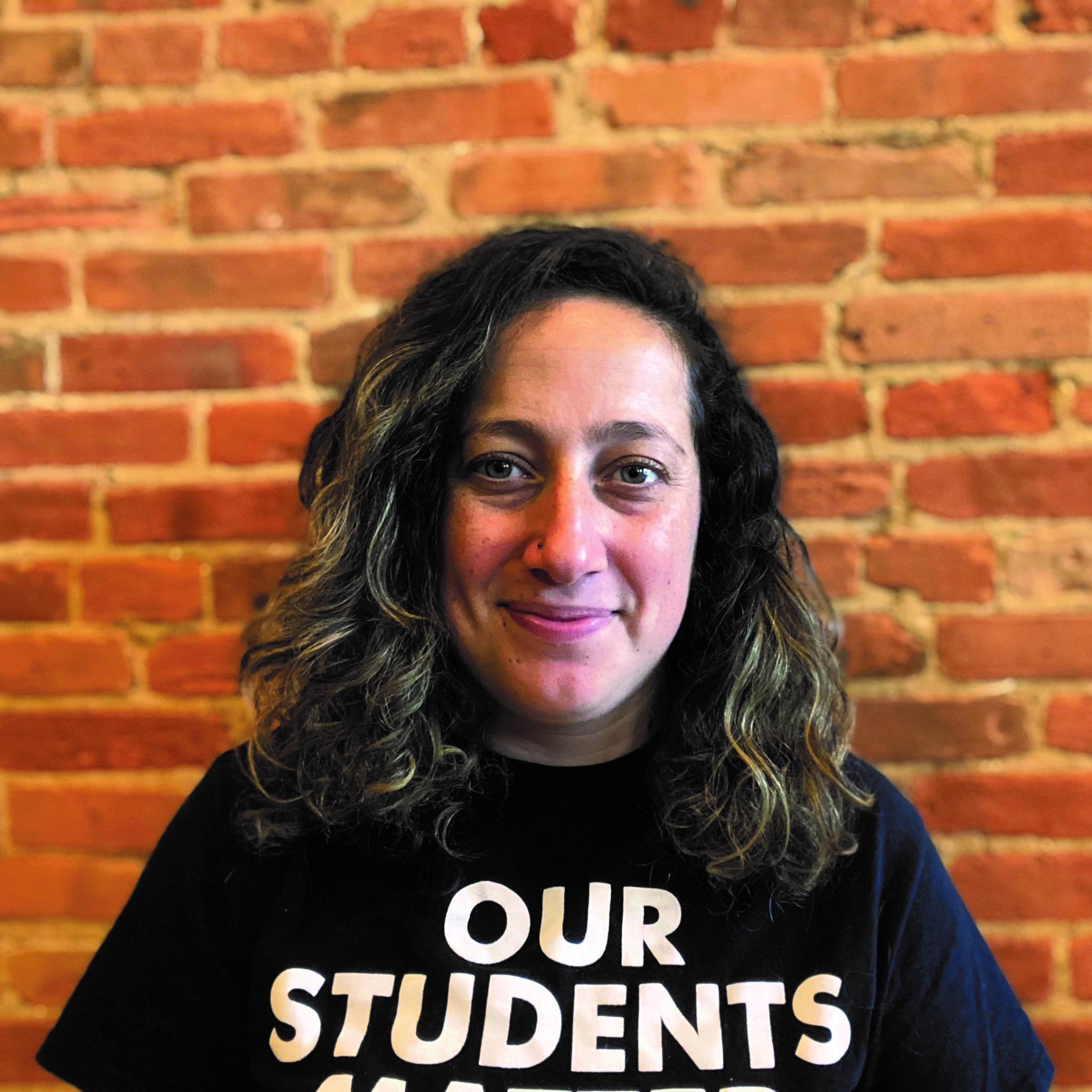
LAINEY HELLMAN (BALTIMORE ‘17)
Special Education Teacher and Delegate to Special Olympics Programming
William Paca Elementary School
Compete Possible: New Gear for Special Olympians
After Lainey Hellman launched a Special Olympics Delegation at her school, she wanted every team member to show up to compete in appropriate gear, regardless of whether they have those items on hand at home. With the CCCF award, Hellman is making sure that no students will be prevented from accessing Special Olympics programming due to lack of athletic wear. The new uniforms and gear give students a sense of belonging, encourage team unity, and create a sense of team identity.
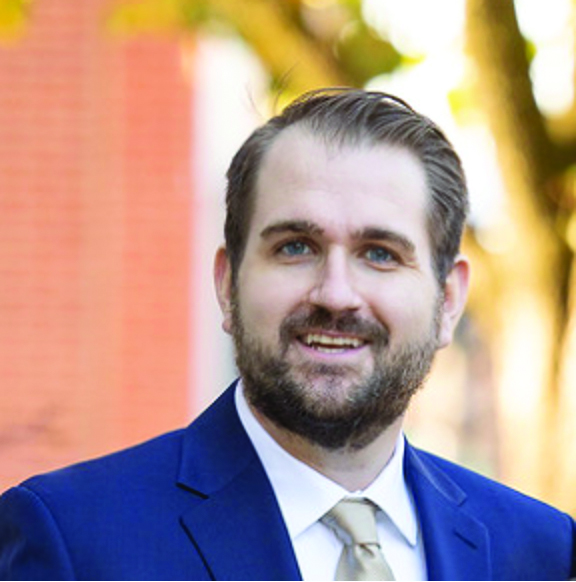
JOSEPH FRANCELLA (BALTIMORE ‘11)
Teacher
Francis Scott Key Elementary/Middle School (FSK)
Piloting CAMP FSX – Bridging the Gap to Middle School
After schools reopened last year, Joseph Francella witnessed a challenging culture growing among students. He felt the best way to cultivate a more positive climate could be through FSK’s sixth-grade orientation—before the school year starts. With the CCCF award, Francella launched Camp FSK, a summer community program bridging the gap to middle school. Over half of the incoming sixth-grade class attended, and between family picnics and excursions with Outdoor Classrooms, students were able to build community with one another and FSK staff, all before the school year starts.
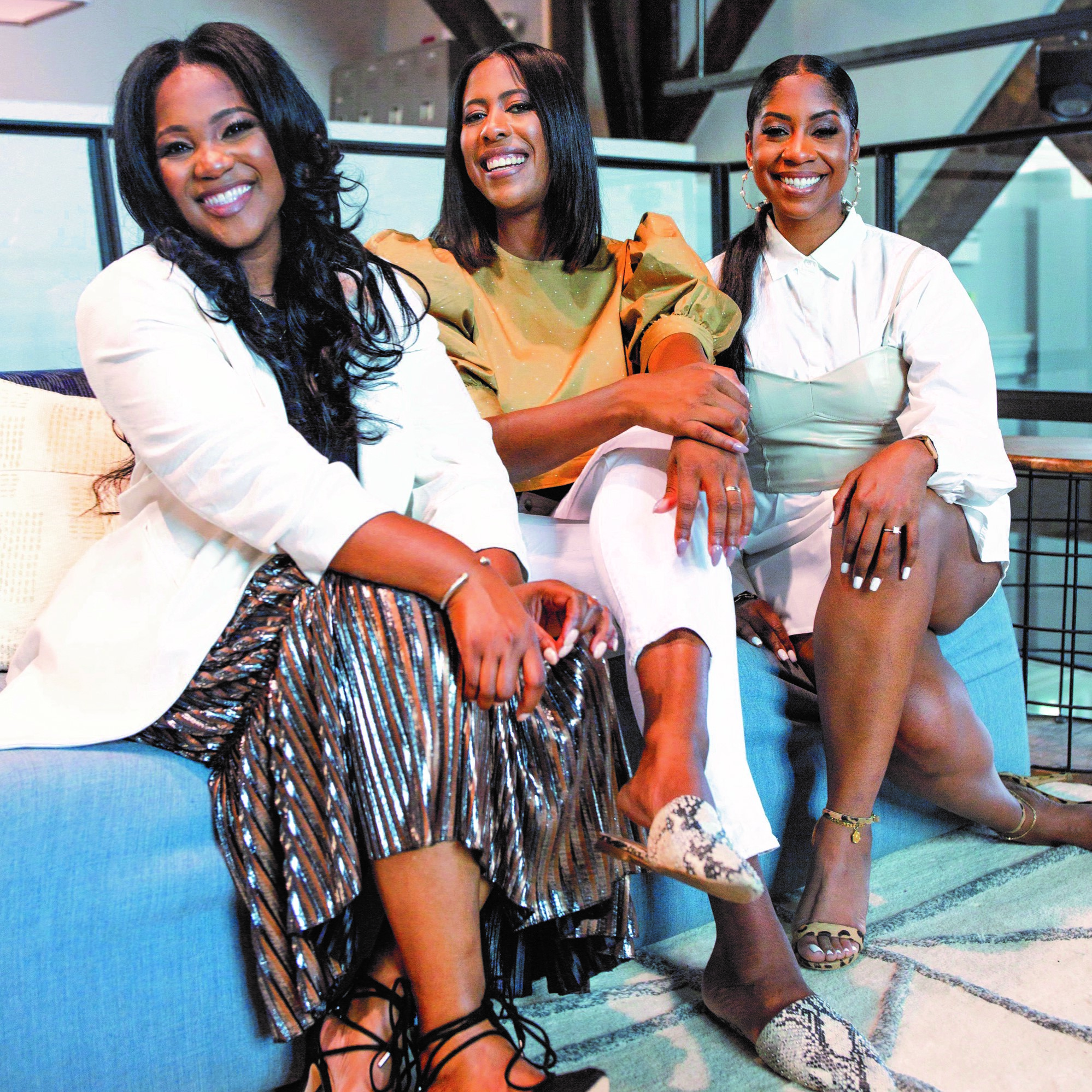
KIMBERLYN PEAL (BALTIMORE ‘09)
Co-Founder
JAPERA PARKER (BALTIMORE ‘09)
Co-Founder
KENDRA GRAY (BALTIMORE ‘09)
Co-Founder
Brown Stone Living
Making Baltimore feel like home for young professionals of color
The co-founders of Brown Stone Living are three professional women who began their careers as educators together in Baltimore City. Like many new teachers, they struggled to find housing, communities, and relationships that catered to who they were as people. Brown Stone Living aims to change that. Understanding how a lack of community can prevent teachers from making Baltimore home, Brown Stone Living is using the CCCF award to subsidize first month’s rent for teachers and host community events to promote retention in Baltimore.
To learn more about the Courtney Cass Catalyst Fund or how you can support any of these initiatives, visit us at bit.ly/tfa_cccf.
